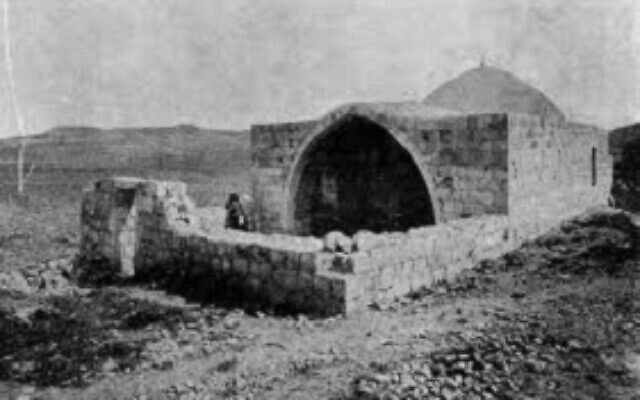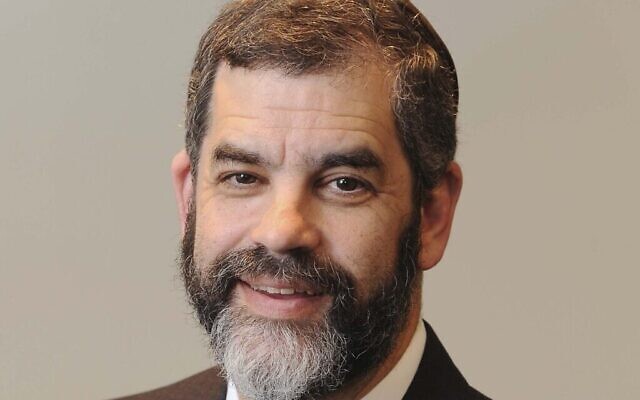U.S. Burials in Israel Delayed By COVID-19
A rarely practiced Jewish law is invoked to enable re-burial in the Holy Land.
Chana Shapiro is an educator, writer, editor and illustrator whose work has appeared in journals, newspapers and magazines. She is a regular contributor to the AJT.

In the Book of Genesis, Joseph had the leaders of Israel swear that his bones ultimately would be buried in the Holy Land, although he would die and be buried in Egypt. In the Book of Exodus, 210 years later, Moses and the generation that left Egypt located Joseph’s tomb and his remains were carried through the desert, ultimately fulfilling the obligation.
Under normal circumstances, the process of Jews anywhere in the world being buried in Israel was accomplished smoothly. This was achieved through efficient coordination between local and New York funeral homes, where “taharah,” preparation of the deceased, takes place before transportation to Israel.
But this arrangement was halted when travel and health restrictions necessitated by COVID-19 made it impossible for families in the United States to carry out the wishes of their loved ones.
Therefore, to fulfill the obligation of immediate burial, Jewish law necessitated the implementation of a rare procedure. The deceased were buried in the city where they died, al t’nai, a legal concept stating on condition that final permanent interment be in Israel.
Jewish reburial is a serious matter, essentially because it is held to be a sacred duty to respect and not disturb the condition of the deceased. Yet, according to the Shulchan Aruch, the 16th century code of Jewish law, there are specific conditions under which it is permitted to disinter a body, including flooding of the grave, destruction of the grave, or other events that could compromise the dignity of the person buried there.
In recent years, Atlantans, with and without families in Israel, have purchased plots in Beit Shemesh at Eretz HaChaim Cemetery. Many of them are members of Congregation Beth Jacob, whose Rabbi Ilan Feldman shared prevailing thoughts on the matter of re-burial.

“Under present circumstances, in which a second burial would have to take place long after the first one, and considering the Jewish reluctance to disturb a grave, re-interment is not an optimal recommendation,” Feldman said. “Unless there is an established traditional family plot in Israel, it may be advisable to permanently bury a loved one here. A second burial in Israel could be carried out, but it would depend on an individual circumstance. In all such cases, mourners will go through all the cemetery rituals a second time, including saying Kaddish, and they will sit shiva again for one day,” he concluded.
I remember my first trip to Israel, when my parents asked me to bring home one particular item. They didn’t want gifts of jewelry or art or ritual objects. My parents wanted soil from the Land of Israel.
“I pray we won’t need it for a long time,” my mother explained, “but when we die, put some of the soil in our casket. It’s the closest we can get to being buried there.” I fulfilled their request in the mystical city of Safed, where I obtained two small containers of earth.
Jews often observe this custom by including a small bag of Israeli soil as part of the burial preparation.
It is a traditional belief that the ultimate redemption of mankind, an age of eternal peace, will take place in Israel. For that reason, Jews of every generation yearned to be laid to rest in Eretz Yisrael, the Land of Israel. If their dream could not be fulfilled, a bit of Israeli soil, if it could be acquired, would have to suffice as a substitute.

During the pandemic, Eddie Dressler of Dressler’s Jewish Funeral Care in Atlanta, has dealt with only one death that involved burial in Israel. The death was not caused by COVID-19, and arrangements were completed for transport on the last plane from New York before all flights were canceled.
To avoid possible conflicts or problems, funeral director Dressler received clear instructions from the Israeli Consulate. Any transportation on El Al of a deceased person, whenever that might again take place, must be accompanied by an official letter from a doctor stating that there was no evidence of a contagious disease on the corpse.
“I was told that, because anyone who died from COVID-19 would not be flown to Israel, we must make all arrangements for immediate local burial here,” Dressler noted.
Currently, Atlanta has no known COVID-19-related deaths of persons with cemetery plots in Israel. However, I spoke to two local residents, who each lost relatives from COVID-19. The first had a parent who died in a metropolitan New York nursing home and was buried there. The family requested anonymity because of pending issues.
A second, Dr. Zvi Aviner, who lives in Atlanta part-time, lost his brother, Avraham, who contracted the virus in New Jersey and is buried there. “We all understand the restrictions, and we agree with them,” Dr. Aviner stated. “When the time comes, and no one knows when that may be, our family will fulfill my brother’s will and bring him to a family plot in Israel where his first wife is buried.”
To carry out the desire of the deceased today, some families are willing to disregard Israeli law. Several mainstream publications, including The Wall Street Journal and The Times of Israel, report that, to avoid the El Al restrictions and two-week quarantine order, private planes have been chartered to bring deceased persons for immediate burial in Israel, resulting in legal conflicts and at least one police investigation.
Most bereaved families’ loved ones are now buried conditionally, al t’nai, until they can finally be laid to rest in the Holy Land.



comments